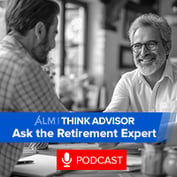Unemployment is still high among millennials, but that number is falling, and youth around the country are finding gainful employment in droves. What’s more, many of them have lofty expectations for retirement, in spite of the crisis occurring among their parents’ generation. An ongoing Gallup poll has shown that roughly a quarter of U.S. citizens between 18 and 29 still expect to retire by age 65, fifteen percent between 60 and 64 and 11 percent before 55.
Given the already rising costs of long retirements, millennials will need to start saving as soon as possible to realize these goals. Some younger Boomers are successfully playing catch-up on their retirement accounts, but that may not be possible for younger workers who expect to maintain comfortable lifestyles during decades-long retirements. For advisors, this group’s need to save smart, save early and learn the ins and outs of comprehensive financial planning represents an enormous opportunity.
Educate First
A lack of education is perhaps millennials’ greatest roadblock in planning and investing for retirement. “Very few colleges even provide personal financial programs, and about 65 percent of students report misunderstanding their student loans,” said Laura Forth, managing director of College CFO. In fact, millennials scored an average of just 69 percent on a financial literacy test put out by the Department of the Treasury and Department of Education. A Brookings Institute study even found that 14 percent of debt-holding students didn’t know they had taken on debt, and that 48 percent didn’t know how much they had paid for their first year of college.
For advisors, this knowledge gap is a great opportunity to educate and empower younger clients. “Personal financial literacy is a measure of success, and less financial stress makes you more productive,” Forth said. Teaching millennials the basics of debt, credit and investing will help them to make the right choices for retirement, but it may also improve their long-term earnings potential and ability to save.
Risk and Reward
Conventional wisdom says to take more risk earlier in life and less close to retirement, but that advice doesn’t always resonate with a generation that saw the effects of the 2008 crash firsthand. “We tend to be pretty conservative with millennials because it’s often their first time investing,” said Forth. “Without a lot of cash flow, even a little bit allocated to a 401(k) or IRA doesn’t leave much to play with, and a high risk assessment doesn’t usually sit well with them.” A UBS Investor Watch report found that on average, millennials hold more than half of their assets in cash and less than a third in stocks. Despite being far closer to retirement, their Generation X and Boomer counterparts hold just 23 percent in cash and 46 percent in stocks.
Still, a lack of education may be what’s really holding young investors back. “Millennials are hesitant on investments in general because they don’t understand the basics,” said Mary Beth Storjohann, Workable Wealth founder and CEO. “I don’t think there’s mistrust in terms of losing money, they just second-guess their decisions because they’re not sure what they’re doing. I don’t have a lot of my clients in fixed income.” In response to this uncertainty, Storjohann strives to educate younger clients and still recommend equities over bonds to provide the greatest potential for growth.
As with any other group, the types of investments and amounts saved will vary among millennials based on their risk preferences. While it makes sense for young investors to pursue stocks over fixed income assets, and certainly over cash holdings. saving more is generally better than saving less. “Just getting them into the habit of saving is the most important piece,” said Eric Roberge, founder of Beyond Your Hammock. “If they feel okay being more aggressive, that’s good, but I’m more interested in saving eight percent conservative than three percent aggressive.”








 March 04, 2015 at 04:02 AM
March 04, 2015 at 04:02 AM









